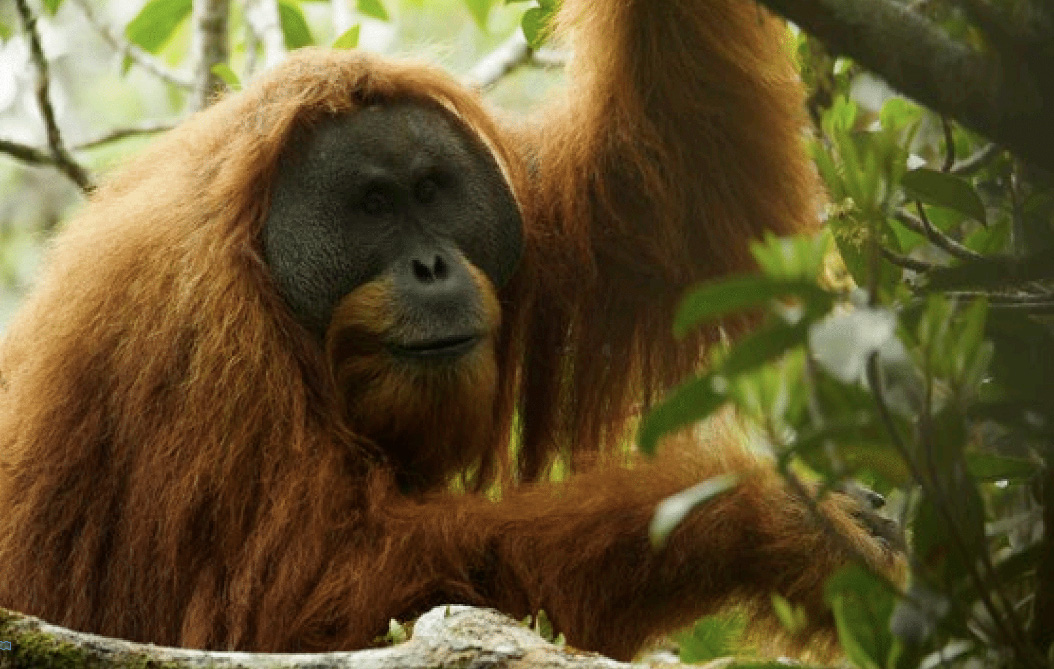Brief Encounters
In 2013, researchers examined the skull of a male orangutan who was killed in a human-wildlife conflict in Northern Sumatra.
Oddly, the anatomical structure of the skull differed significantly from those of other orangutans and stimulated intrigue among the scientific community. On 2nd November 2017, a new species of orangutan was declared; the Tapanuli orangutan.
Discovered less than a year ago, the Tapanuli orangutan is also the most endangered of all the Great Apes with less than 800 individuals existing in the wild. With threats of deforestation, wildfires and hunting becoming evermore fierce, the future of our cousins looks bleak.
The challenges extend further in that the species is endemic - it is only found in this one location in Borneo in the whole world. As a result, ex situ breeding programmes risk doing more harm than good to the 'gene pool' of the orangutans. Not only might this result in slight changes in behaviour of orangutans but it will also reduce the size of the population in the wild. Biologists use the term 'genetic drift' to describe how it would be more likely for certain variations of genes to be lost through generations as the population gets smaller. 'Inbreeding depression' explains how the smaller population sizes will also result in more of the population being relatively weak through the process of inbreeding.
As if this wasn't enough, the Indonesian government now plans to destroy the beautifully crafted landscape which these orangutans have lived in for up to 20,000 years when they are believed to have split off from the Bornean orangutan and Sumatran orangutan.
They plan to construct a hydroelectric dam - controversial? Yes.
It's 'green' energy and is believed to help the locals get jobs and develop - but is it really practical long-term? Are there not less drastic, more sustainable options to consider first?
How about eco-tourism lodges or the creation of National Parks? Where energy is concerned, perhaps solar on roofs or wave energy? It is a tough one.
In the meantime, the clock is ticking for these beautiful creatures. If we don't show try to help our relatives, can we ever say we really knew them?
Please sign the petition below:
https://www.rainforest-rescue.org/petitions/1139/please-sign-the-bulldozers-are-on-the-move?mtu=345355934&t=4194
H _ M
:)
Bibliography:
https://www.worldwildlife.org/stories/new-species-of-orangutan-announced
Oddly, the anatomical structure of the skull differed significantly from those of other orangutans and stimulated intrigue among the scientific community. On 2nd November 2017, a new species of orangutan was declared; the Tapanuli orangutan.
 |
| Source: https://redapes.org/projects-partners/socp/tapanuli-orangutans/ |
Discovered less than a year ago, the Tapanuli orangutan is also the most endangered of all the Great Apes with less than 800 individuals existing in the wild. With threats of deforestation, wildfires and hunting becoming evermore fierce, the future of our cousins looks bleak.
The challenges extend further in that the species is endemic - it is only found in this one location in Borneo in the whole world. As a result, ex situ breeding programmes risk doing more harm than good to the 'gene pool' of the orangutans. Not only might this result in slight changes in behaviour of orangutans but it will also reduce the size of the population in the wild. Biologists use the term 'genetic drift' to describe how it would be more likely for certain variations of genes to be lost through generations as the population gets smaller. 'Inbreeding depression' explains how the smaller population sizes will also result in more of the population being relatively weak through the process of inbreeding.
As if this wasn't enough, the Indonesian government now plans to destroy the beautifully crafted landscape which these orangutans have lived in for up to 20,000 years when they are believed to have split off from the Bornean orangutan and Sumatran orangutan.
They plan to construct a hydroelectric dam - controversial? Yes.
It's 'green' energy and is believed to help the locals get jobs and develop - but is it really practical long-term? Are there not less drastic, more sustainable options to consider first?
How about eco-tourism lodges or the creation of National Parks? Where energy is concerned, perhaps solar on roofs or wave energy? It is a tough one.
In the meantime, the clock is ticking for these beautiful creatures. If we don't show try to help our relatives, can we ever say we really knew them?
Please sign the petition below:
https://www.rainforest-rescue.org/petitions/1139/please-sign-the-bulldozers-are-on-the-move?mtu=345355934&t=4194
H _ M
:)
Bibliography:
https://www.worldwildlife.org/stories/new-species-of-orangutan-announced


Comments
Post a Comment